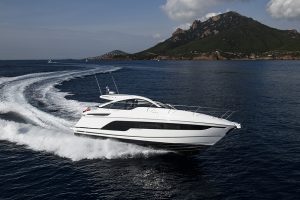Watch: Drones trialled by Caister Lifeboat crew to help save lives at sea
Members of the Caister Lifeboat crew in Norfolk are pioneering the use of drones for search and rescue operations. See the drones in action
Members of the volunteer Caister Lifeboat crew are helping to test drones which could be used as part of search and rescue operations in the future.
The drones have floodlights and cameras, and send life footage back to a screen on board the offshore lifeboat.
It is thought the use of drones would be especially useful in rough seas, where swells and troughs can make searching for a yacht or a person a challenge.

One of the drones. Credit: You Tube
Speaking to the BBC, the chairman of Caister Lifeboat, Paul Garrod, said: “In the past, there have been instances where we have been unsuccessful when searching for someone in need of help.”
“Perhaps if we had been equipped with the drone technology, these searches would have had a positive outcome,” he added.
Continues below…
Dinghy sailor dies after being pulled from the water at Invergordon
Invergordon RNLI crew had to swim out to the sailor due to low tide at Rosskeen in Scotland. Despite efforts…
Cyber security code of practice for ships released
The UK's Department of Transport is warning that more needs to be done to address cyber security in the maritime…
Rolls-Royce demonstrates world’s first remotely operated commercial vessel
Rolls-Royce and global towage operator Svitzer have successfully demonstrated the world’s first remotely operated commercial vessel in Copenhagen harbour, Denmark…
Discussions are currently ongoing with the Civil Aviation Authority to try and agree the use of drones regularly on shouts.
Safety issues, such as the operation of drones around search and rescue helicopters, are still being worked out.
Current regulations mean drones can only be used to a range of 500 metres.

The drone captures Caister’s offshore lifeboat
The drones have been provided by Direct Line Insurance, which developed them with the firm Total UAV to enhance street lighting.
The Caister lifeboat, the Bernard Matthews II, is the only offshore lifeboat in the UK which is run independent of the RNLI.
“It’s early days for this technology, but we are sure it will become standard kit for lifeboats,” Caister Lifeboat posted on its Facebook page.
“And being Britain’s first independent lifeboat, having the fastest lifeboat in the country, we’re always looking to advance our means of rescuing people, and saving lives,” it added.
The Caister Lifeboat is entirely funded through public donation.










